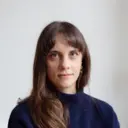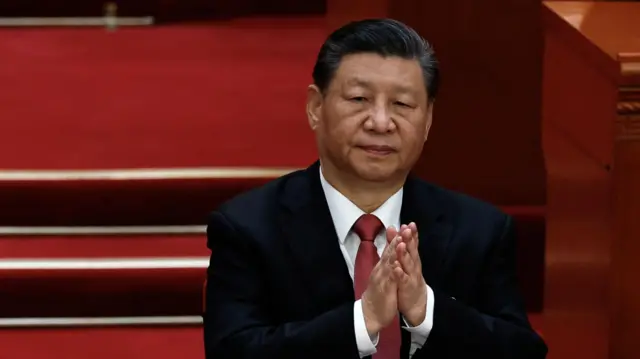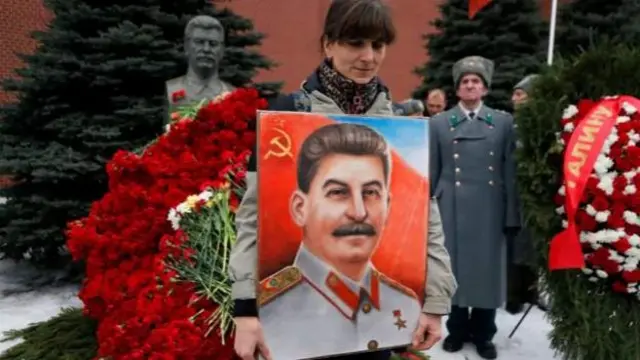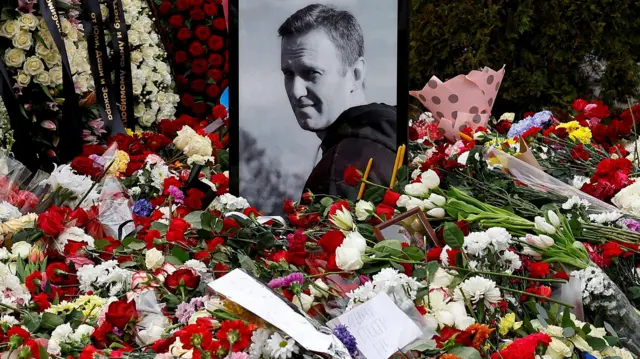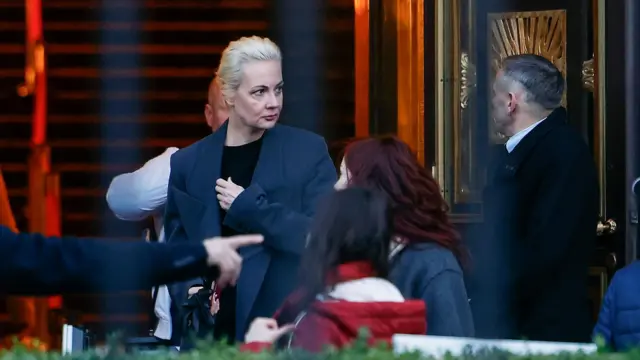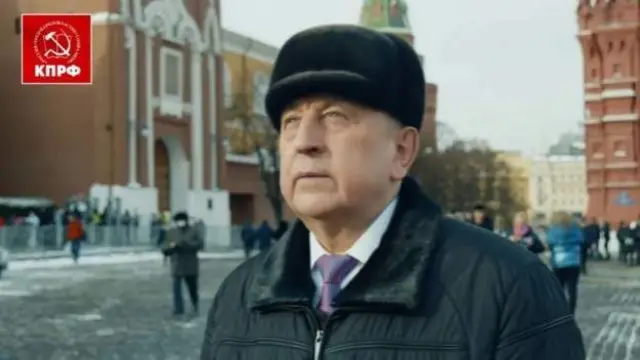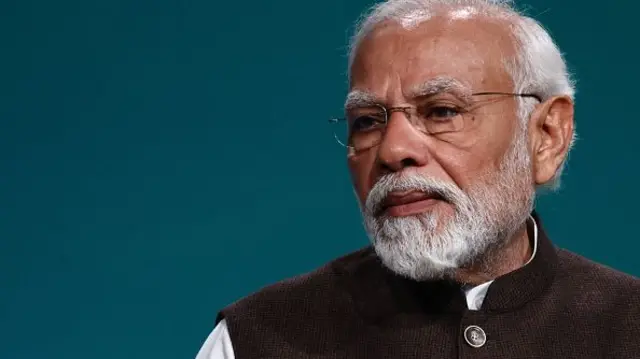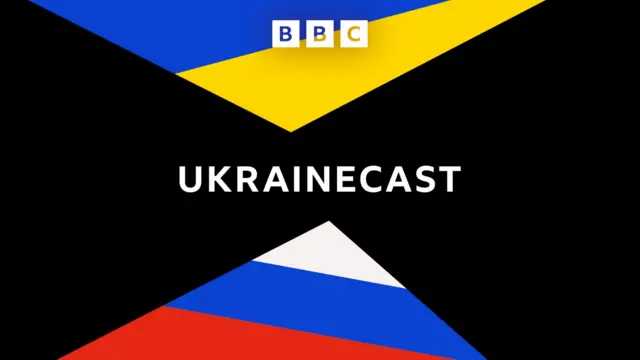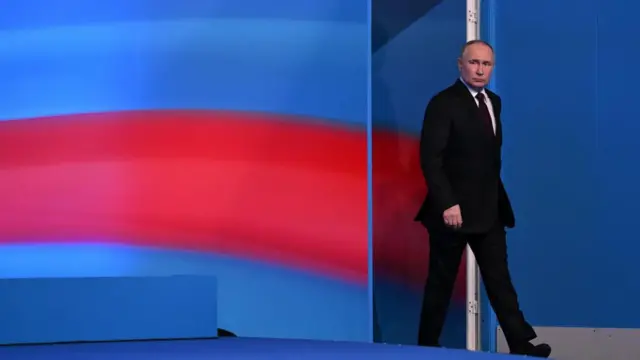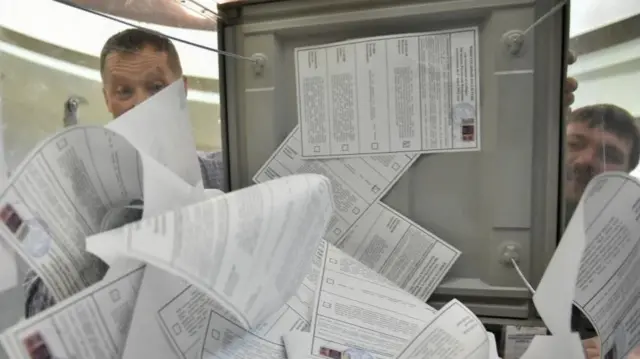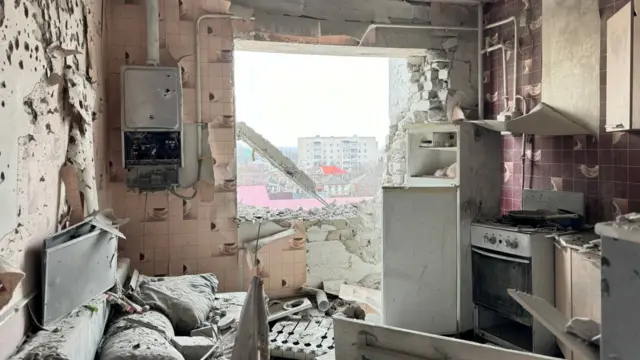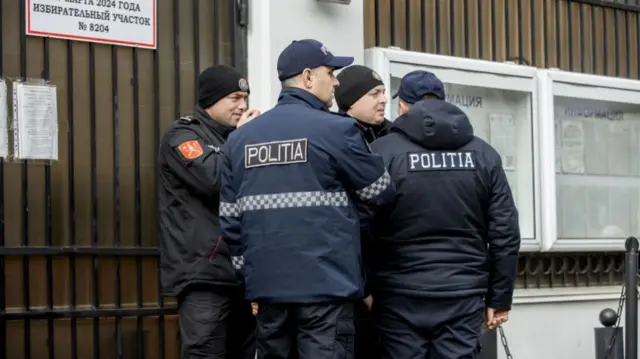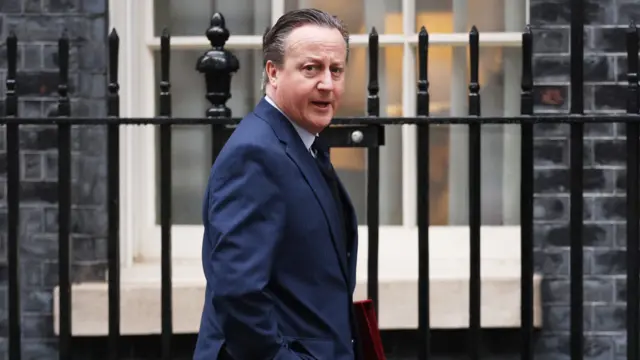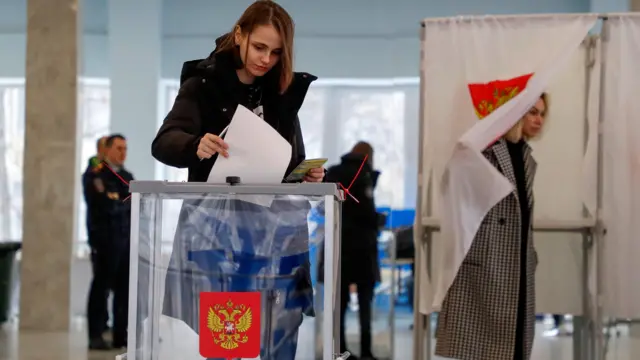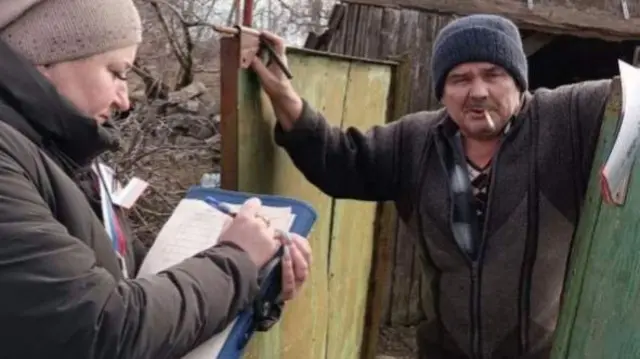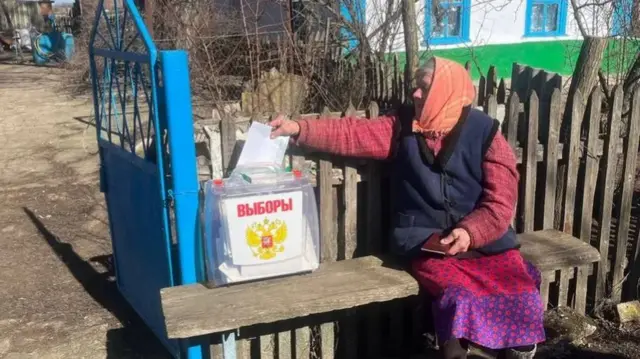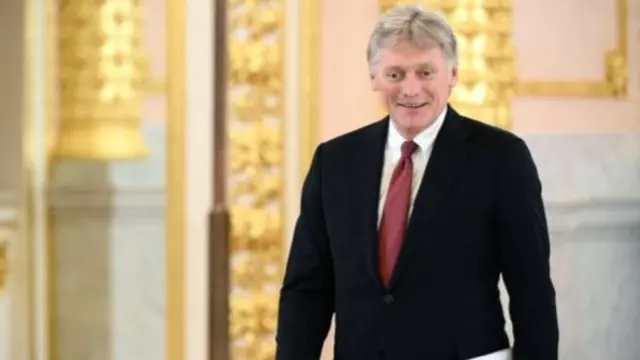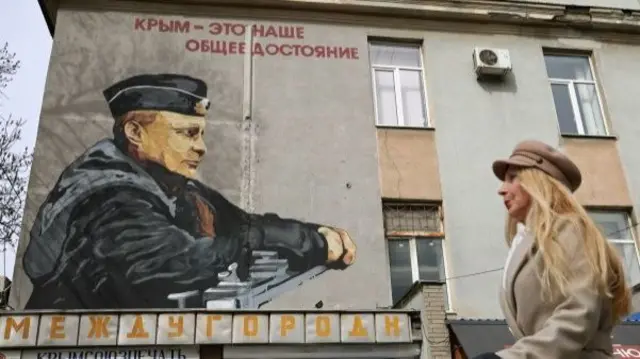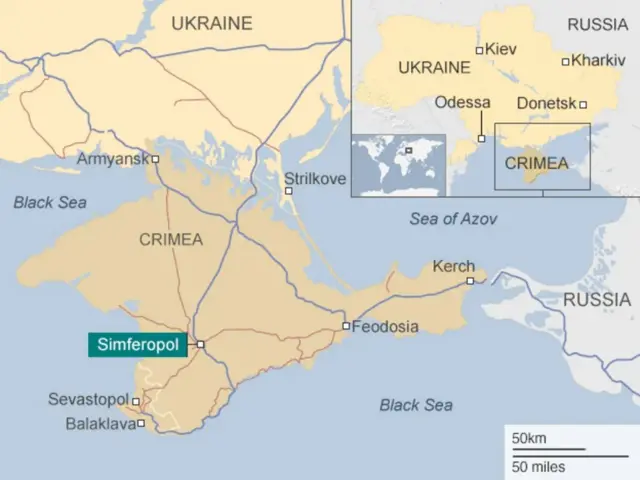
No choice for Ukrainians - more Putin means more warpublished at 14:39 GMT 18 March 2024
 Sarah Rainsford
Sarah Rainsford
reporting from Kyiv
When Ukrainians write about Russia's presidential "election" they put the word in quote marks.
The vote was entirely engineered, so people here were not holding their breath for the result.
The only unknown was how much support Vladimir Putin would claim, and even for him 87% was quite something.
But no-one in Ukraine was laughing.
Whatever the supposed result on paper, the meaning here is clear: more deadly missile attacks, more drones, more shelling.
The full-scale invasion that Vladimir Putin ordered two years ago will go on.
Read the full story here.
